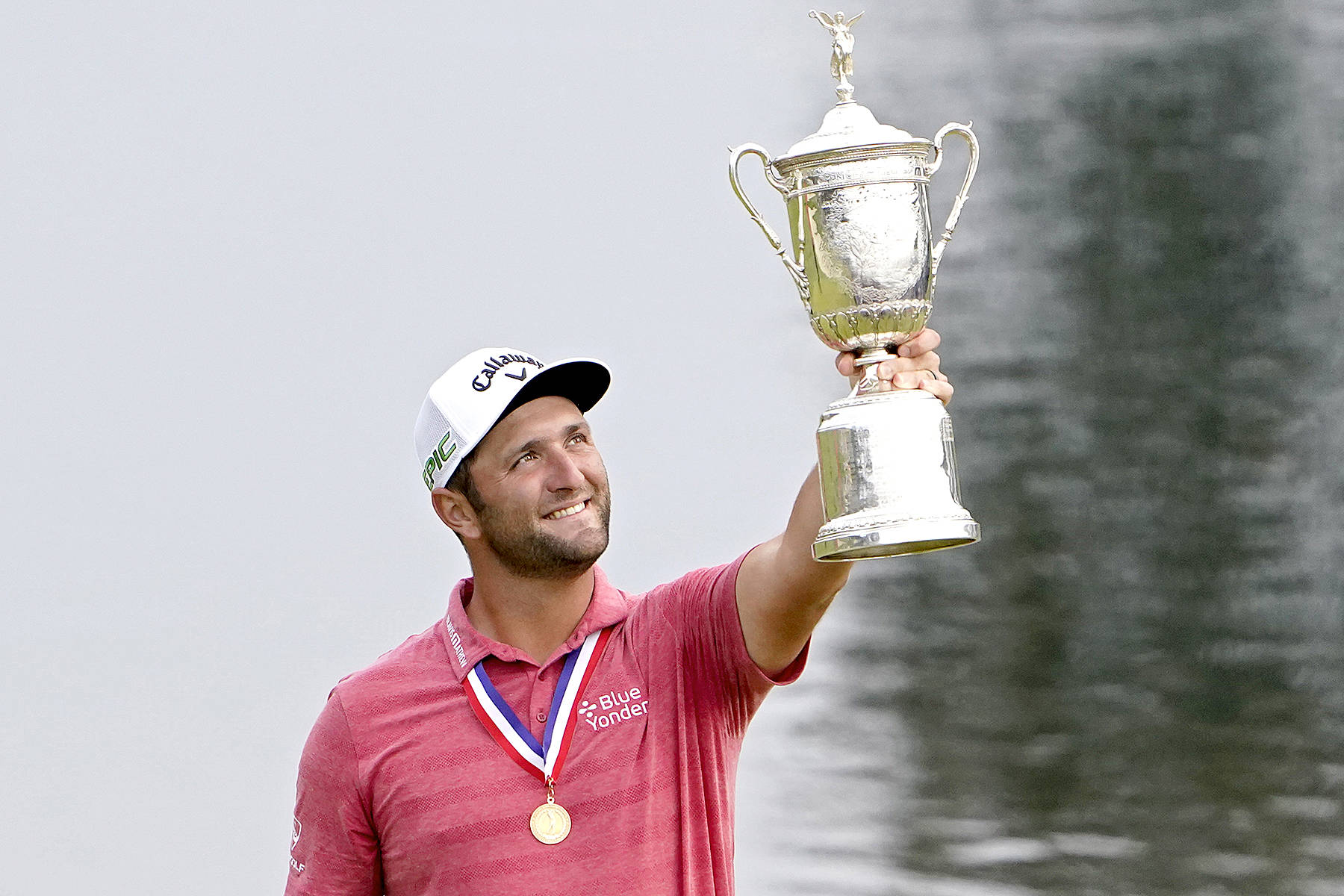By Doug Ferguson
The Associated Press
SAN DIEGO — Jon Rahm’s road to becoming a U.S. Open champion might have started with a pair of bogeys.
It ended with a pair of birdies at Torrey Pines that will be far more memorable. In the previous 120 editions of the U.S. Open, no one had ever birdied the last two holes for a one-shot victory.
The result was pure euphoria for Rahm, a 26-year-old Spaniard known for power and passion, and it’s the latter that always got more attention.
That’s what took him back to a month ago at Kiawah Island. He struck the ball as well as ever and got nothing out of it. He finished the third round of the PGA Championship with back-to-back bogeys, and Rahm was fuming when he was asked to meet with the media.
He was short. He was angry. And he’d had enough of being both.
His emotions helped as much as they hurt in leading him to 11 victories worldwide. But he was a new father, and he felt a greater responsibility.
“I know I can perform at my best without showing my frustration so much. I made that deal with myself after the third round of the PGA,” Rahm said Sunday. “I wasn’t happy with how I ended, and I could have handled it better. And I vowed to myself to be a better role model for my son. He won’t remember any of this because he’s only 10 weeks old. But I do.”
Nothing was sweeter than seeing Rahm take infant son Kepa into his arms as he walked off the 18th green Sunday after an 18-foot birdie putt that made him a major champion and added a chapter to the short history of the U.S. Open at Torrey Pines.
It wasn’t as big as Tiger Woods making a 12-foot birdie to force a playoff in 2008. It won’t be forgotten, either.
“Little man, you have no idea what this means right now,” Rahm said to his son on the practice range when his one-shot victory over Louis Oosthuizen was secure.
There was wonderment in his voice.
It was that change in perspective at Kiawah Island that he feels led to a closing 68 in the PGA, and an unprompted apology when he signed his card.
“It’s OK to be upset, and I’m never going to judge myself for being upset,” Rahm said that day. “But I will judge myself if I don’t conduct myself properly.”
He thrives on emotions, and they were in full view when he made the 25-foot birdie putt on the 17th hole to tie for the lead and the winning putt on the 18th.
But what he carried across the South Course was a positive outlook.
It’s what he had at the Memorial when he was building a six-shot lead after 54 holes, and when it was taken away from him by two men wearing masks behind the 18th green as they told him he had a positive COVID-19 test and was out of the tournament.
The statement he posted that night sounded scripted at the time. It was closer to raw truth with that shiny U.S. Open trophy at his side: “This is one of those things that happen in life, one of those moments where how we respond to a setback defines us as people.”
He even watched the final round of the Memorial on TV.
“He’s won two tournaments in a row. I don’t care what anyone says. He had that title,” Rory McIlroy said.
Rahm never looked at it that way. He has lived with the risk of COVID-19 for more than a year, and lost a friend, Jose Manual Cortizas, a sports reporter from Bilbao, Spain, who fell in love with golf while covering Rahm.
“This is the power of positive thinking,” Rahm said. “I was never resentful for one second for what happened. And I don’t blame anybody. It’s been a difficult year, and unfortunately COVID is a reality in this world, and it’s affected a lot of people.
“I believed from the biggest setbacks we can get some of the biggest breakthroughs, and that’s why I stay so positive,” Rahm said. “That’s why I kept telling (wife) Kelley when she was devastated about what happened … something good is going to come.
“I don’t know what, but something good is going to come,” he said. “And I felt it today out there on the golf course.”

